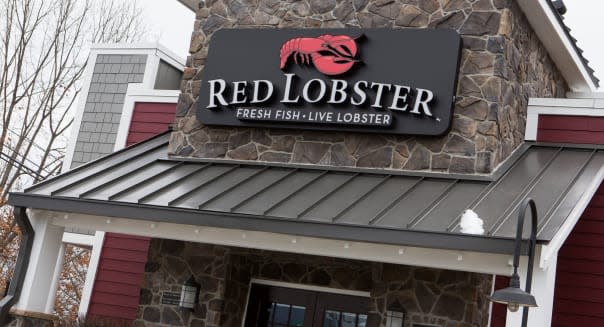What Red Lobster and Olive Garden Need Even More Than Fresh Menus

Diners want more than Cheddar Bay biscuits these days, and no one knows this better than Red Lobster parent Darden Restaurants (DRI).
The casual dining juggernaut behind Red Lobster, Olive Garden, and several smaller chains has been posting uninspiring financial results lately. We'll get another fresh snapshot when it reports quarterly results in two weeks.
The last time out was a disaster. Back in September, Darden served up lower-than-expected profitability numbers as business fizzled out at its two marquee concepts. Same-restaurant sales -- an important metric for the industry as it measures how well the average eatery is holding up -- fell 4 percent at Olive Garden and 5 percent at Red Lobster. Darden's other restaurants are faring better for the most part, but it's not as if LongHorn Steakhouse, Bahama Breeze, and Capital Grille can move the needle here. Olive Garden and Red Lobster combine to account for 71 percent of Darden's business.
Olive Garden is trying to liven things up by introducing a burger into its menu this month. Red Lobster may want to see what it can do to appeal to a broader audience, too.
Have a Burger with Your Unlimited Breadsticks
Olive Garden's Italiano Burger is rolling out across the chain this week. It's a hamburger, dolled up with prosciutto, mozzarella cheese, arugula, and marinated tomatoes. The buns are dressed up with a garlic aioli spread. Parmesan garlic fries come on the side.
It's clearly Olive Garden's attempt to put an Italian spin on the traditional burger, but naturally there's no reason why you can't strip the sandwich of the Italian garnishes and just order your burger plain.
%VIRTUAL-article-sponsoredlinks%Olive Garden is also introducing a sausage and bell pepper sandwich, but it's a safe bet that it's the Italiano Burger that's going to be turning heads because it helps defuse the "veto factor" that has likely held Olive Garden's performance back in the past. That's how the restaurant industry thinks of the problem of having just one person in a group who won't be able to find anything on your menu he wants. If someone in your dining party just isn't in the mood for Italian, it's hard for Olive Garden to win your business that night.
"I'm just not feeling Italian right now," your friend might say.
"Well, you can always have a burger," you counter. "It even comes with fries." Veto problem, sorted.
Cracking Red Lobster's Shell
Red Lobster may carry an even bigger "veto factor" burden given the nature of seafood and finicky diners, but it won't have to follow Olive Garden to Burger-ville. It's already there.
Red Lobster already offers a traditional wood-grilled burger. In fact, it offers plenty of landlubber choices including steaks, chicken sandwiches, and chicken-topped pastas. It's problem is getting people through its doors to try them.
Red Lobster overhauled its menu late last year, adding to its offerings items like pork chops, parmesan-crusted chicken served over corkscrew pasta, and even roasted veggie skewers. Unfortunately it's not working. Red Lobster performed even worse than Olive Garden during the summer quarter. It apparently needs more than a broader menu. At the very least, Red Lobster could be doing a better job of letting potential diners know that it's about more than just the signature lobster.
"Sea Food Differently," is the chain's current slogan. A few years ago it used to be "Red Lobster for the seafood lover in you." One would think that with the word "lobster" in your name, you wouldn't have to play up the seafood quite so hard in your marketing, but that hasn't stopped the chain from pumping its maritime theme and aggressively promoting its endless shrimp campaigns.
This strategy could be a mistake, but it also isn't helping that we're in the worst of times for the table service dining industry. Industry tracker NPD Group has been reporting negative sales for the casual dining market dating all the way back to 2008. The streak ended with a merely flat showing this summer, but it's still a bad moment to be a weak player in a weak eatery segment. It's time to work on the marketing.
Motley Fool contributor Rick Munarriz has no position in any stocks mentioned. The Motley Fool owns shares of Darden Restaurants. Try any of our newsletter services free for 30 days.

